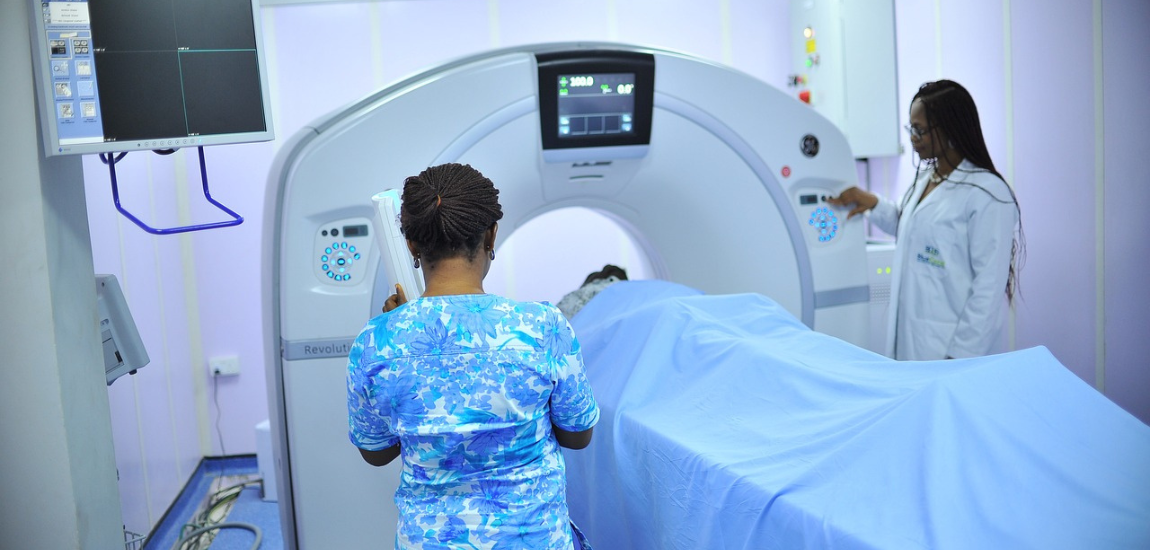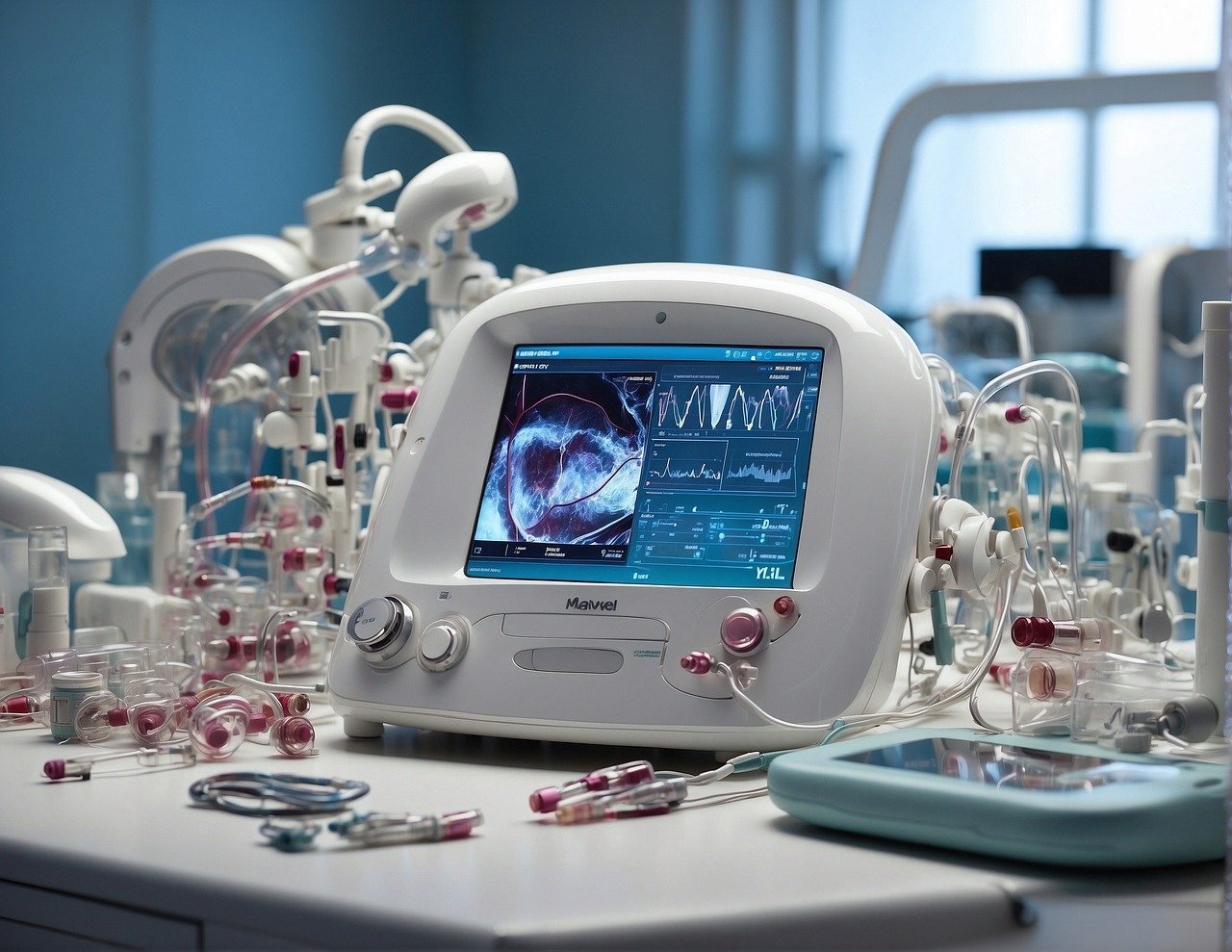Robotics Process Automation Healthcare Transforming the Robotics of Medicine’s Industry
Published: March 1, 2025

Robotics Process Automation Healthcare The ever-converting technological panorama requires healthcare experts and businesses to revise their operational strategies. One groundbreaking fulfillment nowadays is the development of the Robotics Process Automation (RPA) era. To place it, RPA is the usage of software robots to automate repetitive tasks, also called techniques, and in the healthcare sector, RPA XR is expected to streamline operations, enhance affected person care, lessen costs, and enhance operational performance. With healthcare systems grappling with administrative burdens, statistics management, and patient care complexities, RPA is an option for many revolving problems.
Nonetheless, notwithstanding the increasing acknowledgment of RPA capacity in fitness care systems, there have been several roadblocks, which might be in particular due to numerous affected person care carriers now not having absolute information on how to use this technology effectively. This article aims to offer the reader statistics concerning the principal thoughts linked to RPA in healthcare, its advantages and challenges, and what steps need to be taken so one can integrate it into existing structures. After you’ve analyzed this article, you should be completely able to discover how your healthcare group can benefit from the advancement of RPA.
This article is aimed at everyone from a healthcare administrator to an IT expert. Even if you are just curious about how the enterprise is automating, you’ll discover the usage of RPA. We’ll cover the whole thing, from choosing the precise software to crafting a complete method for its adoption, so if it’s time for one to improve in the subsequent era of healthcare, keep reading.
Table of Contents:
- Understanding Robotics Process Automation (RPA) in Healthcare
- Types of RPA in Healthcare
- The Role of RPA in Healthcare
- 8 Potential Use Cases of RPA in Healthcare
- How to Improve Efficiency with RPA in Healthcare
- RPA in Real Life: Examples from Healthcare
- RPA Market Statistics in Healthcare
- Popular RPA Platforms in Healthcare
- The Benefits and Challenges of RPA in Healthcare
- Why RPA is Crucial for Healthcare’s Future
- Conclusion
1.Understanding Robotics Process Automation (RPA) in Healthcare

Robotics Process Automation Healthcare is a software generation process wherein a software program, called a bot, is programmed to perform repetitive tasks that humans previously did. In healthcare, automation is used in administrative processes, including scheduling, activity logging, patient data management, charging, etc. The consciousness of RPA in healthcare is to enhance operational productivity, control prices, and support healthcare professionals in painting, which must be done with human beings’ aid.
Robotics Process Automation Healthcare By automating monotonous and mundane tasks, RPA not only complements the speed of processing but also addresses the opportunities for human error. Increased accuracy, adherence to regulations and rules, and productivity are the advantages of RPA being implemented in exceptional healthcare institutions.
2. Forms of RPA in the Healthcare Sector
2-Types of RPA in Healthcare
Robotics Process Automation Healthcare Attended RPA: In this kind, a human is involved at any point in the automation method. It is most effective with techniques that require human oversight for some part of their execution.
Unattended RPA: This kind can handle entire responsibilities autonomously from beginning to end without supervision. It is desirable for mundane and repetitive tactics like handling affected person statistics or keeping and updating structures.
Robotics Process Automation Healthcare Before selecting the type of RPA to implement, it is vital to consider what needs to be automatic and how much human oversight is needed.
3.The Role of RPA in Healthcare
Robotics Process Automation Healthcare technology is a need in this day and age. From enhancing the everyday approaches of an organization to reworking the care supplied to the sufferers, automation is changing the enterprise for the better. Some critical capabilities are:
- Information Management: RPA gear can make the information series method extra accurate, including updating electronically stored fitness facts (EHRs).
- Invoice and Claim Transactions: Automating the invoicing and claim transactions speeds up the repayment process from one-of-a-kind insurance groups and decreases errors.
- Compliance Audits: RPA guarantees compliance with guidelines by preserving and updating guidelines and reporting strategies. This is mainly challenging with changing policies.
- Patient Engagement: Robotics Process Automation Healthcare Bots can make it difficult to remember appointments and observe sufferers while responding to primary queries posed by patients, enhancing the enjoyment a patient receives.
5. 8 Potential Use Cases of RPA in Healthcare
Robotics Process Automation Healthcare is not just a catchphrase but is practiced in numerous ways. Given below are eight viable approaches
- Appointment Scheduling: Patients can schedule appointments without the need for staff to be on obligation due to the RPA system.
- Data Management: The RPA gadget can process claims automatically, determine eligibility, and remind patients if they have any past-due payments.
- Electronic Health Record (EHR) Management: Robotics Process Automation Healthcare can streamline the tactics of EHR updating and patient report retention, ensuring the accuracy of patient information and reducing mistakes.
- Patient Registration: Patients do not now want to look forward to lengthy intervals of time earlier than being registered, consequently contributing to RPA in healthcare. Patients genuinely wish to enter the reception and complete the automated gadget registration
- .Inventory Management: RPA can oversee stock maintenance to ensure healthcare centers are always stocked with critical clinical resources.
- Billing & Payments: Robotics Process Automation Healthcare Through automated scientific billing, patients, in addition to healthcare insurers, will benefit from improved performance and accurate billings.
- Reporting and Analytics: Robotics Process Automation Healthcare can produce efficient reviews vital for compliance, audits, and economic analysis in a defined time body.
- Clinical Trials: Data regarding the medical trial may be maintained using RPA, which increases the accuracy and pace of the research.
6-How to Improve Efficiency with RPA in Healthcare

Robotics Process Automation Healthcare The use of RPA has numerous blessings for any company that is improving efficiency in healthcare. RPA brings more excellent prices through its automation and lets corporations be aware of patient care. Effective execution and plans reduce operational prices, improve productivity, and minimize aid consumption. Below are some of those steps:
- Recognizing Repetitive Processes: The first step entails figuring out which tactics in your organization are vintage and mundane. These are often exceptional candidates for automation.
- Utilize the Correct Tool: With AI-generated technology growing, there’s an AI device for everything. Choose an AI tool with step-by-step guides that could adapt to your structures and increase alongside your commercial enterprise.
- Form a Robust Plan: Robotics Process Automation Healthcare Before implementing RPA into your machine, make certain you have the right desires, timelines, and key objectives. These greatly aid in creating a powerful roadmap.
- Training Employees: Robotics Process Automation Healthcare Train your employees about the effects of RPA and how it interacts with pre-hooked-up methods. This will help them adapt faster and reduce anxiety about the new modifications.
RPAs Implementation in Real Life: Healthcare’s Change
Now, allow us to test some examples of RPA remodelling healthcare.
- Cigna Health: RPA has enabled Cigna to remove data access work from 30% of its workforce and has helped automate claims tactics to increase productivity and normal accuracy.
- Mercy Health: At Mercy, sufferers can complete registrations 70% faster because of the creation of AI technology in RPA-enabled structures.
- Anthem: Anthem uses RPA for numerous administrative processes, including claims management and compliance reporting, which improves the rate and accuracy of the effects.
7. RPA Market Statistics in Healthcare
Robotics Process Automation Healthcare industry is predicted to make the global RPA market noticeable in the upcoming years. The marketplace document using Grand View Research notes that the fee for healthcare RPA marketplaces became $1.33 billion in 2020 and is expected to compound yearly by using 31—four from 2021 to 2028. The increased figures show the growing number of automation technologies within the healthcare enterprise.
8. Popular RPA Platforms in Healthcare
Robotics Process Automation Healthcare The healthcare sector has numerous RPA systems that establishments have followed because they’re practical and easy to use. These encompass:
- UiPath: Healthcare establishments use Ui Path for process automation, where its scalability and ease of use are crucial in claims management and affected person scheduling.
- Automation Anywhere: Healthcare providers seeking added fees with intelligent automation will find this platform most suitable due to its advanced analytics and AI function.
- Blue Prism: In the Blue Chip class, Blue Prism stands proud because of its energy in protection and compliance, making it best for healthcare groups with stringent guidelines.
9. Advantages and Disadvantages of RPA in Healthcare

Benefits:
- Enhanced Cost-Effectiveness: RPA self-bot systems carry out mundane obligations, allowing personnel to interact with extra-essential obligations.
- Savings: Reduces expenditure on guide works and lessens human blunders, resulting in saving charges.
- Enhanced Care: By imposing administrative step B, a lot of time may be saved at step A, and higher care can be furnished by fitness experts.
Challenges:
- Higher Expense: RPA calls for a premature fee in the era and a new employee learning timetable.
- Obduracy: A stubborn attitude toward numerous technological procedures among healthcare staff may also extend the time frame for spending on equipment and implementation strategies.
- Fitting: Difficulties and time estimates can be spent on becoming RPA with the current healthcare structure context.
10. How RPA Will Shape the Future of Healthcare
Robotics Process Automation Healthcare The enterprise is riddled with problems like skyrocketing prices, overhead inefficiencies, and the urgent need for advanced patient services, and RPA presents a unique approach to those challenges. By changing manual approaches with automatic structures, healthcare’s productivity is propelled, errors are lessened, and services to sufferers may be maximized.
Robotics Process Automation Healthcare is to become the standard of working, not simply an improvement. Invest in automation now to ensure the quality outcomes of your healthcare organization in the future.
Conclusion
Robotics Process Automation Healthcare threatens to improve the healthcare quarter, enhance performance, decrease expenses, and enhance affected person care. There are demanding situations to impose RPA. However, those demanding situations are minimal in comparison to the blessings. With the proper selection of gear, identification of tedious obligations, and formulation of an implementation plan, RPA may be perfectly infused into healthcare.
The impact of RPA on the healthcare zone will only be greater, and its implementation will surely be smoother with time. Businesses that choose to combine RPA at an early stage will have the upper hand in adapting to the new technology.
FAQ
1. What is Robotics Process Automation (RPA) in Healthcare?
Robots in healthcare refer to the utility of “software robots” to adopt monotonous duties like access to records, claims processing, and affected person registration to resources within the efficiency.
2. How can RPA improve healthcare efficiency?
RPA, via automation and removal of administrative human blunders, streamlines techniques, enabling the healthcare workforce to dedicate greater time to the sufferers.
3. What are the sorts of RPA used in healthcare?
As with many sectors, healthcare business tactics can be assisted by a bot that functions unattended or by a bot that can be used with some human assistance (attended automation) on a given business procedure.
4. What are some use cases of RPA in healthcare?
The RPA era can substantially improve healthcare productivity by automating techniques such as appointment scheduling, processing affected person claims, entering affected person demographics, patient billing, and reporting, in addition to dealing with shares.
5. What are the challenges of implementing RPA in healthcare?
These demanding situations include, but are not constrained to, initial investments, collaboration with contemporary structures, and tried-and-true teamwork pushback towards new technologies. However, the impediments are substantially outweighed by the advantages.

- Be Respectful
- Stay Relevant
- Stay Positive
- True Feedback
- Encourage Discussion
- Avoid Spamming
- No Fake News
- Don't Copy-Paste
- No Personal Attacks



- Be Respectful
- Stay Relevant
- Stay Positive
- True Feedback
- Encourage Discussion
- Avoid Spamming
- No Fake News
- Don't Copy-Paste
- No Personal Attacks





